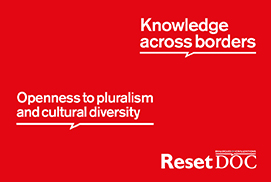19 December 2007
Dear Michael, you suggest a sort of division of labor between those who pursue a confrontational strategy and those who pursue a politics of dialogue or between warriors and intellectuals - writes Nadia Urbinati - a distinction that recalls that between Hobbes and Kant as opposite models of politics that Robert Kegan identified with USA and Europe respectively. I am not sure that this division of labor is a good solution. J.S. Mill used to say that a critical thinker should complicate a reality that believers tend instead to see as simple and one-dimensional (Manichean view). The conservative intellectuals who gave voice to the U.S. Administration and stressed an ideological dualism between USA and Europe, confrontation and dialogue, have done a bad service to their country and the world.





